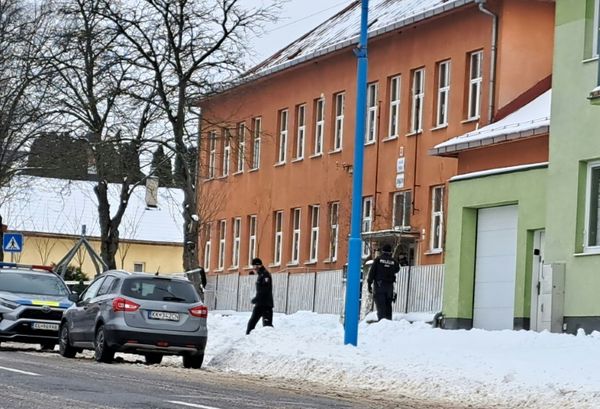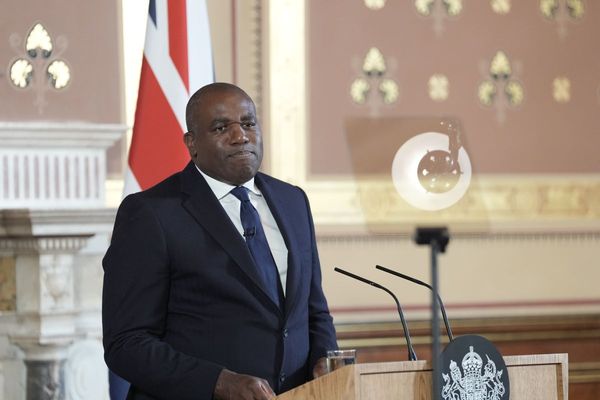
Kyiv (Ukraine) (AFP) - Three bulk carriers loaded with grain set sail from Ukraine on Friday under a landmark deal to free up shipments brokered by Turkey, as its leader met his Russian counterpart for talks on Moscow's invasion of its neighbour.
Months of efforts by President Recep Tayyip Erdogan saw Moscow and Kyiv agree in Istanbul last month to resume the shipments from Ukrainian ports in a bid to relieve a global food crisis caused by the assault launched in February.
The government in Kyiv said on social media that two ships carrying Ukrainian maize -- the Maltese-flagged Rojen and the Turkish Polarnet -- had set off from Chornomorsk while the Panama-flagged Navistar departed from Odessa.
As the vessels left, Erdogan was preparing with most of his top ministers for his second talks with President Vladimir Putin in 17 days and a working lunch in the Russian resort city of Sochi.
"I believe that (today's meeting) will open a whole different page in Turkish-Russian relations," the Turkish president said at the start of the talks, while Putin voiced hopes for a deal to boost "the development of our trade and economic ties."
Putin also thanked Erdogan for helping orchestrate the resumption of Ukrainian grain shipments.
"Deliveries have already begun.I want to thank you, both for this and for the fact that at the same time an accompanying decision was made on uninterrupted supplies of Russian food and fertilisers to world markets," Putin said.
The first ship from Ukraine crossed Istanbul on Wednesday, while the three latest deliveries were destined for Turkey and markets in Ireland and Britain.
European Council on Foreign Relations fellow Asli Aydintasbas wrote in a report last week that the war had "restored Turkey's self-image as a key geopolitical player" give Erdogan a higher profile than at any time in recent years.
The Turkish leader wants to translate the success into truce talks in Istanbul between Putin and Ukrainian President Volodymyr Zelensky.
"We discussed if the grain agreement could be an occasion for a sustainable ceasefire," Turkish Foreign Minister Mevlut Cavusoglu said after talks with Russian counterpart Sergei Lavrov in Asia this week.
Extensive investigations
The rare diplomatic breakthrough has been overshadowed in Ukraine, however, by a mushrooming controversy over accusations that the war-torn country is violating international law and endangering civilians in its defence against Russia's invasion.
Amnesty International released a report Thursday listing incidents in 19 cities and towns where Ukrainian forces appeared to have put civilians in harm's way by establishing bases in residential areas.
Zelensky equated the accusations to victim-blaming in an evening address in which he said the rights group had sought to offer "amnesty (to) the terrorist state and shift the responsibility from the aggressor to the victim".
"There is no condition, even hypothetically, under which any Russian strike on Ukraine becomes justified.Aggression against our state is unprovoked, invasive and terrorist," he added.
"If someone makes a report in which the victim and the aggressor are supposedly equal in some way...then this cannot be tolerated."
After a four-month investigation, Amnesty said it had found that the Ukrainian military had established bases in schools and hospitals, and launched attacks from populated areas, asserting that the tactics violated international humanitarian law.
It pushed back against criticism of its report Friday, saying the group "fully stands by our research."
"The findings...were based on evidence gathered during extensive investigations which were subject to the same rigorous standards and due diligence processes as all of Amnesty International's work," Secretary General Agnes Callamard told AFP in emailed comments.
Counter-offensive
On Friday, the Ukrainian presidency and local authorities reported Russian bombardments overnight targeting the southern city of Mykolaiv with widely-banned cluster bombs and heavy artillery -- wounding 20 people, including a 14-year-old boy.
Mykolaiv -- which has been attacked frequently -- is on the main route to Odessa, Ukraine's biggest port on the Black Sea, and is the closest city to the southern front.
The regional regional governor Vitaliy Kim ordered a curfew from 11:00 pm (2000 GMT) on Friday until 5:00 am (0200 GMT) on Monday, appealing to locals to "plan the weekend and make purchases for these two days."
"Honest people have nothing to worry about -- just keep your documents with you," the governor said on social media platform Telegram.
Several towns and villages in the east, including Nikopol and Kryvyi Rig, were also hit by shelling that damaged houses and a gas station.
Several missiles struck the central city of Zaporizhzhia overnight, where Moscow has been accused of storing heavy weapons at Europe's largest nuclear power plant in occupied Ukrainian territory.
There was also heavy bombardment of Ukraine's second city Kharkiv, in the northeast, where housing, shops, a market and an educational institution were damaged.
Ukrainian forces are conducting a counter-offensive in the country's south, where they claim to have retaken more than 50 villages previously controlled by Moscow.
They also claimed to have liberated two villages in the eastern Donetsk region on Thursday and one near Kharkiv on Friday.







